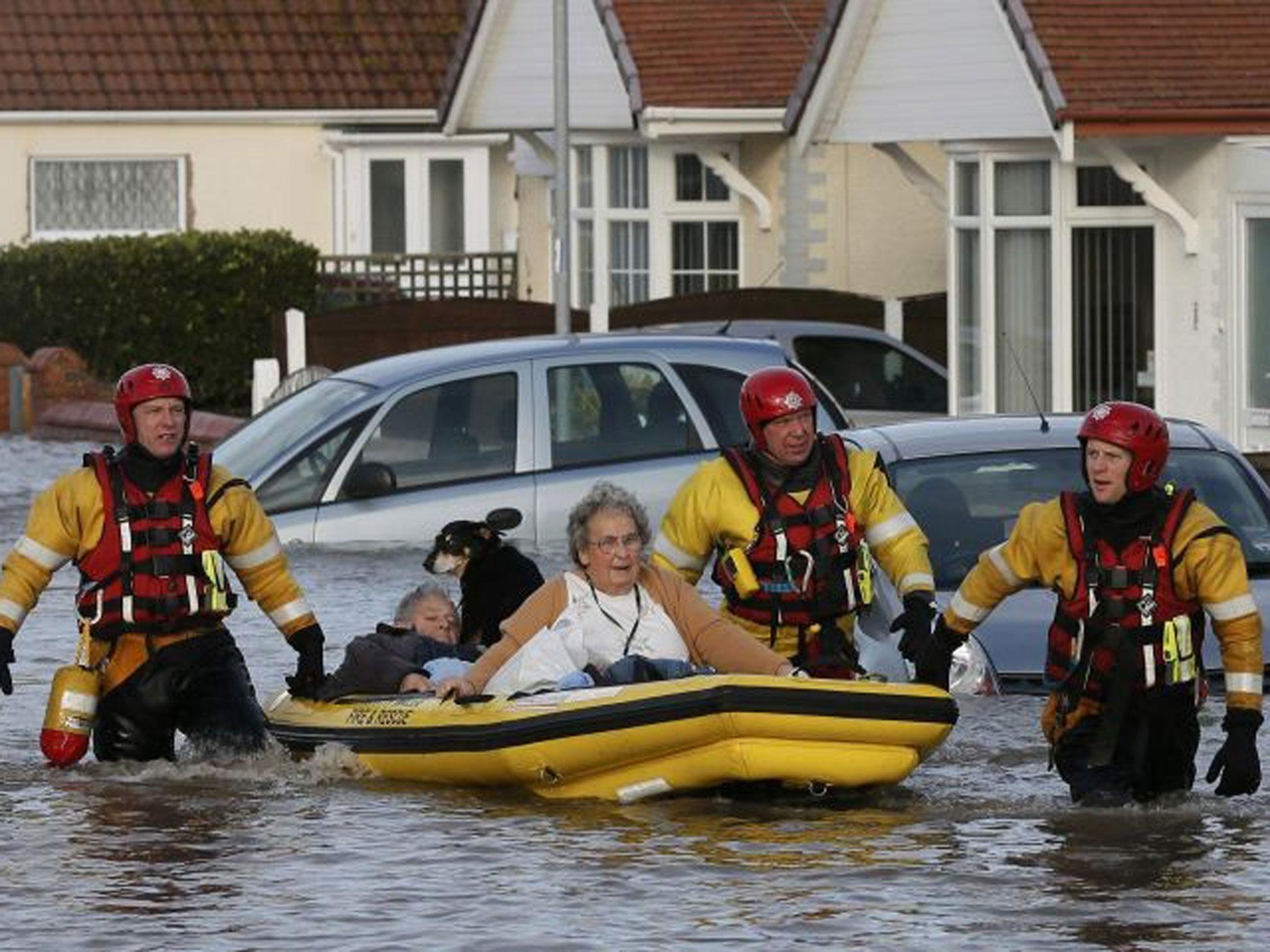Extreme weather to cost UK billions and leave 2.5m homes at risk of flooding unless ministers take action, warns WWF
Report on the risks posed by climate change in 2050 warns there could be significant damage to the economy if it is not ‘future-proofed’

Floods, droughts and heatwaves could cost the economy tens of billions of pounds and hundreds of thousands of jobs by 2050, according to a new report commissioned by conservation charity WWF.
A “natural capital” stress test found that flooding in 2050 on a similar scale to the winter of 2013/14 would affect more than twice as many homes if current policies – such as allowing construction on flood plains – continued.
The process is based on stress tests used in the financial sector to try to work out the future health of a company, such as a bank, in the event of an economic crisis.
WWF said there were some “major environmental challenges” on the way, so it made sense to try to “future-proof” the economy.
Michael Gove, the Environment Secretary, has spoken about the need to ensure that the “insights of natural capital thinking and accounting” are used to inform policy.
As part of that, ministers plan to publish what could be a ground-breaking 25-year environment plan, although a draft version leaked to the BBC earlier this year was criticised for its “grand promises” but “zero detail”.
The new report, produced for WWF by analysts Aecom Infrastructure and Environment and Cambridge Econometrics, warned the cost of extreme weather events would soar if the Government fails to plan ahead.
Floods in 2013/14 were estimated to have caused £1.3bn worth of damage.
But the report said a similar flood in 2050 would be much worse, costing some £2.2bn, if the population kept growing, the climate continued to change and not enough was done to adapt to the new weather conditions.
And while just more than a million homes are currently at high risk of flooding, by 2050 that number could be nearly 2.5 million – a rise of 129 per cent.
The report also warned of a significant increase in the numbers of roads, railway lines, care homes, schools, emergency services, hospitals and even mobile phone masts at high risk because of flooding.
A three-month drought in 2050 could result in the loss of 354,000 jobs and cost the economy about £35bn if reserves of water continued to be depleted, the report suggested.
But, if water reserves were protected so that they stayed at current levels, the same drought would cost less than half that amount.
Climate-related problems such as floods, wildfires, heatwaves and disease outbreaks could also damage the 2050 farming industry, causing the loss of some 347,000 jobs and cutting the gross domestic product by about 0.9 per cent.
Karen Ellis, chief advisor on economics and development at WWF, said: “We have some major environmental challenges coming our way, and our economy needs to be future-proofed.
“From increased risks of flooding to soil erosion, drought and air pollution, our environment is changing quicker than people think.
“This is bad for business, bad for our national economy, and bad for jobs. But businesses and governments across the UK are giving it too little consideration when making decisions.”
Stress testing nature would enable the Government to “better understand and manage these risks”, she added.
“Environmental damage is already imposing significant costs on the UK economy and businesses,” Ms Ellis said.
“The UK Government must start addressing these issues properly or it is going to cost us all money and some of us might even lose our jobs.”
Coca-Cola has been working with WWF and farmers in East Anglia, where sugar beet used in the soft-drink giant’s products is grown, to try to improve river water quality in the area since 2012. This includes trying to reduce pollution running off fields into the River Nar.
Liz Lowe, sustainability manager at Coca-Cola Great Britain, said: “Water is the main ingredient in all of our drinks, and it’s also an important part of our production process.
“That’s why we want to make sure we use it responsibly and sustainably with a commitment to replenish an equivalent amount of the water we use back to nature and communities.”
The Nar is designated as a Site of Special Scientific Interest as it is home to wildlife, such as otters, water voles, trout and kingfishers.
WWF has been working with Coke to get the river closer to being formally declared as having good ecological status, as required under the European Union’s Water Framework Directive, by reducing the amount of pesticides and fertilisers flowing into the river from local farms.
The river has also been forced to run in straight trenches in some sections, but work is underway to restore its natural meandering state, which can help reduce flooding.
A Department for Environment, Food and Rural Affairs spokesperson said:“As a world leader in tackling climate change, the UK Government is committed to protecting both our communities and the environment from the impacts of severe weather events.
“We have set out our vision for a Green Brexit to not only maintain but enhance environmental standards and we will publish a 25-year plan setting out a new approach to protecting the environment.”
Join our commenting forum
Join thought-provoking conversations, follow other Independent readers and see their replies
Comments
Bookmark popover
Removed from bookmarks